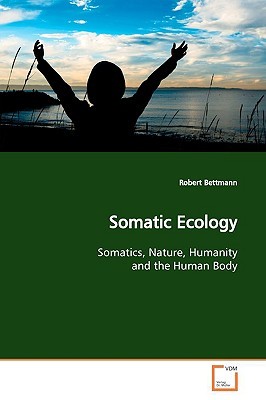
- We will send in 10–14 business days.
- Author: Robert Bettmann
- Publisher: VDM Verlag
- Year: 2009
- Pages: 100
- ISBN-10: 3639150252
- ISBN-13: 9783639150254
- Format: 15.2 x 22.9 x 0.6 cm, minkšti viršeliai
- Language: English
- SAVE -10% with code: EXTRA
Reviews
Description
Many people argue that we are in a deepening environmental crisis. To develop adequate responses to these growing problems, we need to find the most complete ways to think about the world, and our place in it. While it seems odd at first: if the body is valued as a knowledge source, a more ecologically balanced relationship may emerge between humanity and nature. The theoretical underpinnings for this idea include earlier theories of environmental ethics, the study of the history of the body in western society, and the study of outputs of Somatic practices. To develop a healthier relationship with nature, we might start by listening more closely to the part of nature with which we are most intimate - our bodies. Changing the existing relationship toward our natural selves involves challenging human/nature and human/body dualities. Somatic training methodologies can play a critical role in re-valuation of the body as a source of knowledge.
EXTRA 10 % discount with code: EXTRA
The promotion ends in 21d.13:17:11
The discount code is valid when purchasing from 10 €. Discounts do not stack.
- Author: Robert Bettmann
- Publisher: VDM Verlag
- Year: 2009
- Pages: 100
- ISBN-10: 3639150252
- ISBN-13: 9783639150254
- Format: 15.2 x 22.9 x 0.6 cm, minkšti viršeliai
- Language: English English
Many people argue that we are in a deepening environmental crisis. To develop adequate responses to these growing problems, we need to find the most complete ways to think about the world, and our place in it. While it seems odd at first: if the body is valued as a knowledge source, a more ecologically balanced relationship may emerge between humanity and nature. The theoretical underpinnings for this idea include earlier theories of environmental ethics, the study of the history of the body in western society, and the study of outputs of Somatic practices. To develop a healthier relationship with nature, we might start by listening more closely to the part of nature with which we are most intimate - our bodies. Changing the existing relationship toward our natural selves involves challenging human/nature and human/body dualities. Somatic training methodologies can play a critical role in re-valuation of the body as a source of knowledge.


Reviews